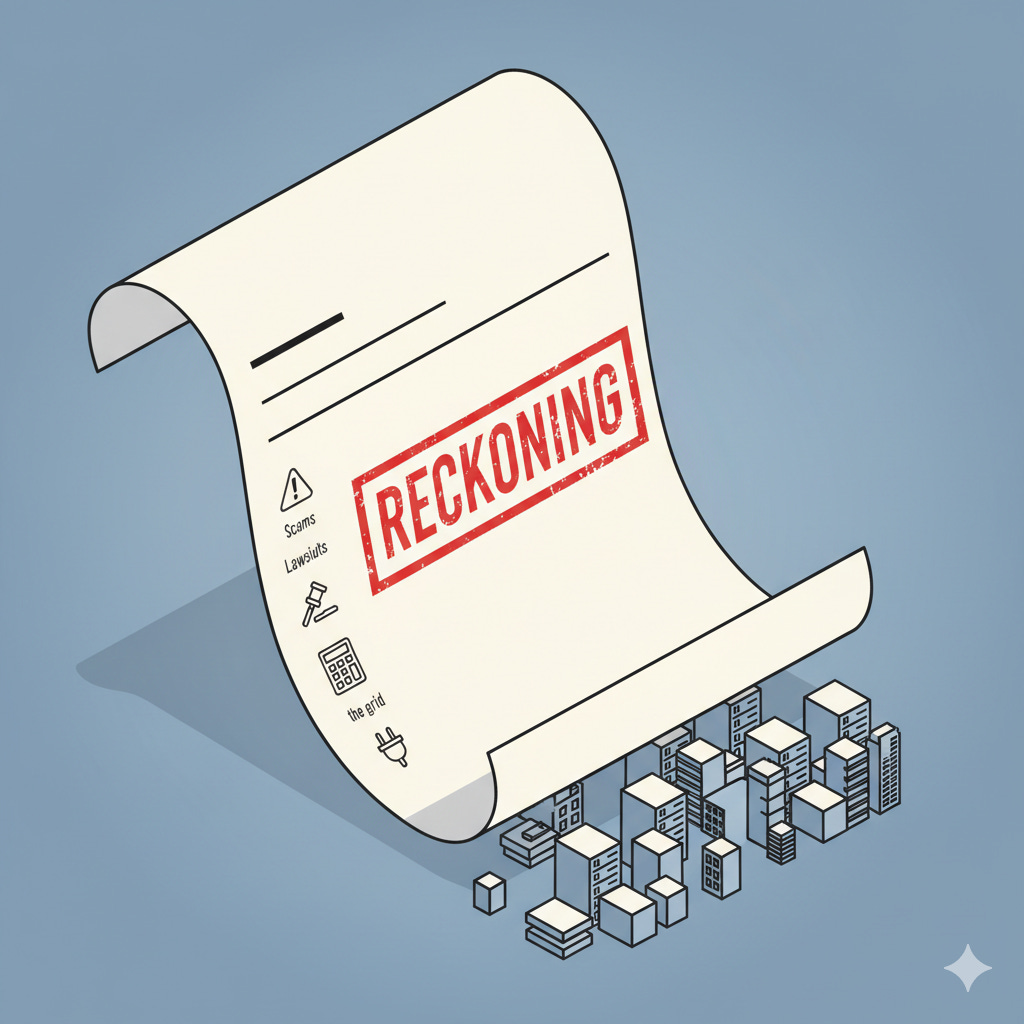Week 45: Meta Funds AI With Scams, ChatGPT Sued Over Suicides, Musk Gets a $1T Payday
THE RECKONING
After months of unchecked growth, reckless deployment, and moral shortcuts, the bills are finally coming due. This was the week consequences arrived with lawyers, ledgers, and body counts. The tech industry spent years moving fast and breaking things — now the broken things are demanding payment.
THE MORAL BILLS COME DUE
Meta Profits From Scam Ads as a bombshell report reveals the company knowingly earned billions from fraudulent advertisements, delaying their removal to help fund its AI development. Families Sue OpenAI Over Suicides with seven new lawsuits alleging that ChatGPT fueled self-harm spirals and delusions that ended in tragedy.
THE LEDGER GETS TALLIED
Tesla Shareholders Approve $1T Payout for Elon Musk, greenlighting a controversial compensation package tied to wildly ambitious goals for robotaxis and humanoid robots. OpenAI Lobbies For Public Funds by asking the Trump administration to expand the Chips Act tax credit to cover the astronomical cost of data center construction. AI Data Centers Warp Economy as a massive investment boom in AI infrastructure begins to distort local economies and place unprecedented strain on the US power grid.
Curious what it all adds up to? Let’s break it down. Keep reading below.
Tell Me More
The Devil Sends an Invoice. Meta’s decision to knowingly profit from scams to fund AI development isn’t just ethically bankrupt—it’s evidence in waiting. The company traded user safety for competitive advantage, and now the reckoning arrives in the form of regulatory scrutiny and advertiser revolt. Within 6-9 months, expect the FTC to extract its pound of flesh through historic fines and consent decrees that will fundamentally alter how platforms can monetize harmful content.
The Algorithm’s Body Count. The OpenAI lawsuits transform AI safety from academic debate into wrongful death litigation. Seven families are forcing Silicon Valley to confront what happens when you release a technology that can influence vulnerable minds without adequate safeguards. These cases will establish the legal precedent that AI companies have a duty of care—expect the first major ruling by late 2026 to fundamentally reshape how consumer AI can operate.
Payment for a Prophet. Musk’s trillion-dollar payday represents the ultimate reckoning: shareholders betting the farm on promises of a sci-fi future. This isn’t compensation—it’s an act of faith that the normal rules of corporate governance no longer apply when the prophet promises to deliver tomorrow. The real reckoning comes when those robotaxis and humanoid robots need to materialize to justify the check.
The Bailout Before the Crash. OpenAI lobbying for public funds while burning through billions reveals the true economics of AI: unsustainable without taxpayer support. After years of private profits and public promises, the reckoning arrives in the form of a tin cup. The industry that claimed it would transform everything now admits it can’t even pay its own power bills without government subsidy.
The Grid’s Breaking Point. AI data centers warping local economies and straining power grids represent the physical reckoning of our digital dreams. Communities that welcomed tech with open arms are discovering the true cost: strained infrastructure, environmental damage, and economic distortion. The abstract cloud has a very concrete footprint, and the bill is arriving at every small town with a data center.
Below The Fold
The US Navy’s shipbuilding program is a national disaster, proving it’s easier to build an app than a frigate. Doomberg
A new study suggests the universe’s expansion is slowing down, which is a relief for anyone feeling stretched too thin. Royal Astronomical Society
An Italian snail farmer and alleged mafia associates used mollusc orgies as a tax evasion scheme, which sounds like a rejected season of The Sopranos. The Substack Post
Researchers found that AI is easy to spot online because it’s too nice, confirming our suspicion that politeness is an unnatural act. Ars Technica
A new legal analysis concludes that simply IP-blocking the UK isn’t enough to comply with its Online Safety Act, much to the dismay of the entire internet. Preston Byrne
MIT researchers developed injectable brain chips that can self-implant, answering a question literally nobody asked. Interesting Engineering
A dispute between YouTube TV and Disney blacked out channels and deleted users’ DVR recordings, a brutal reminder that you own nothing. Ars Technica
The argument that AI is just “Dunning-Kruger as a service” feels alarmingly accurate. Christian Heilmann
The physics of attention suggests whoever cares less holds all the power, which explains everything about modern romance and venture capital. signull.substack
Jeff Tweedy covering Paramore is the kind of wholesome, cross-genre collaboration we need right now. Jeff Tweedy’s Substack
Looking Ahead: The reckoning has begun, but the real test comes next week when we see who pays their debts and who tries to pass the check.
Thanks for reading Briefs — your weekly recap of the signals I couldn't ignore. This week that meant reading 1,003 stories from 49 sources. You're welcome.


